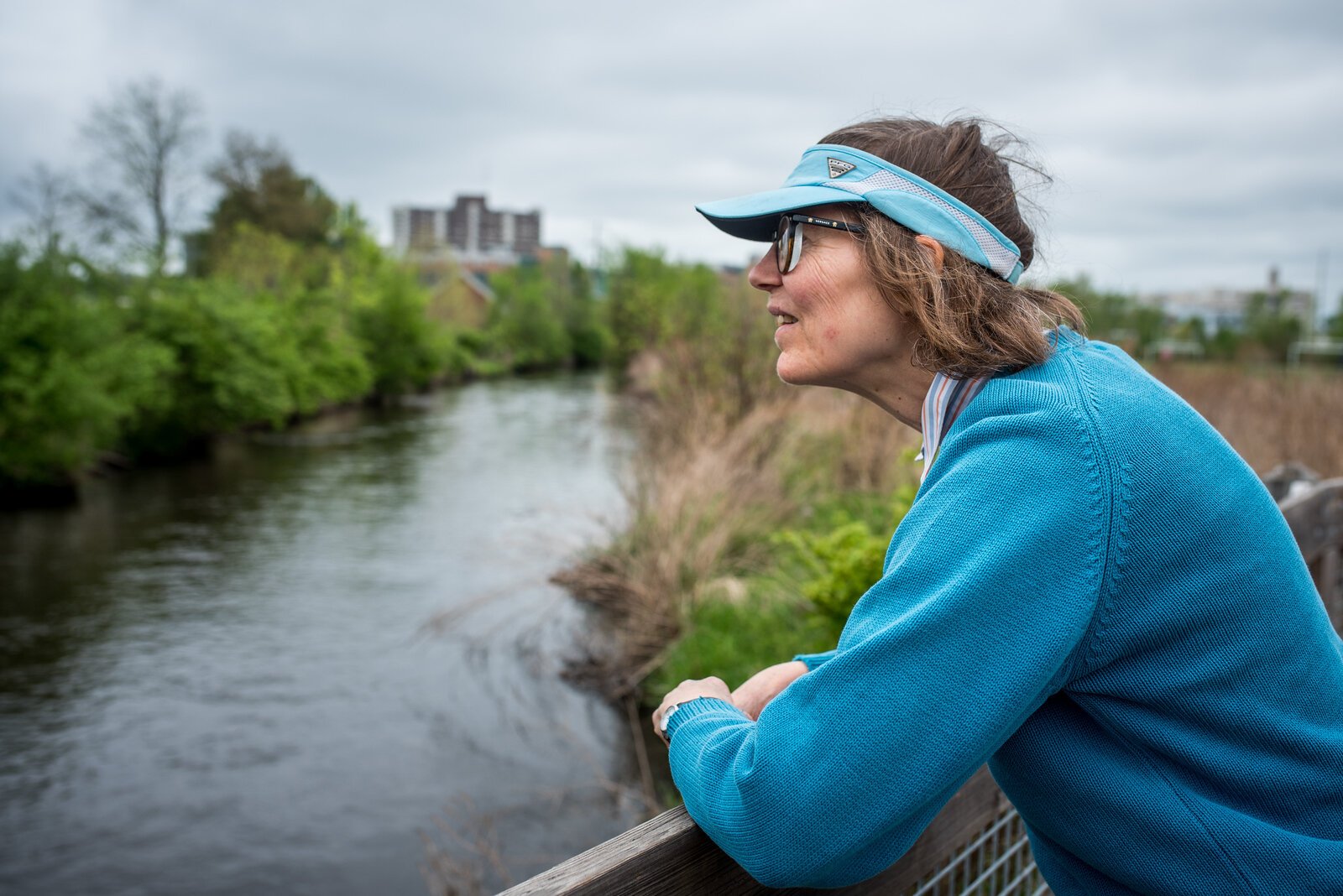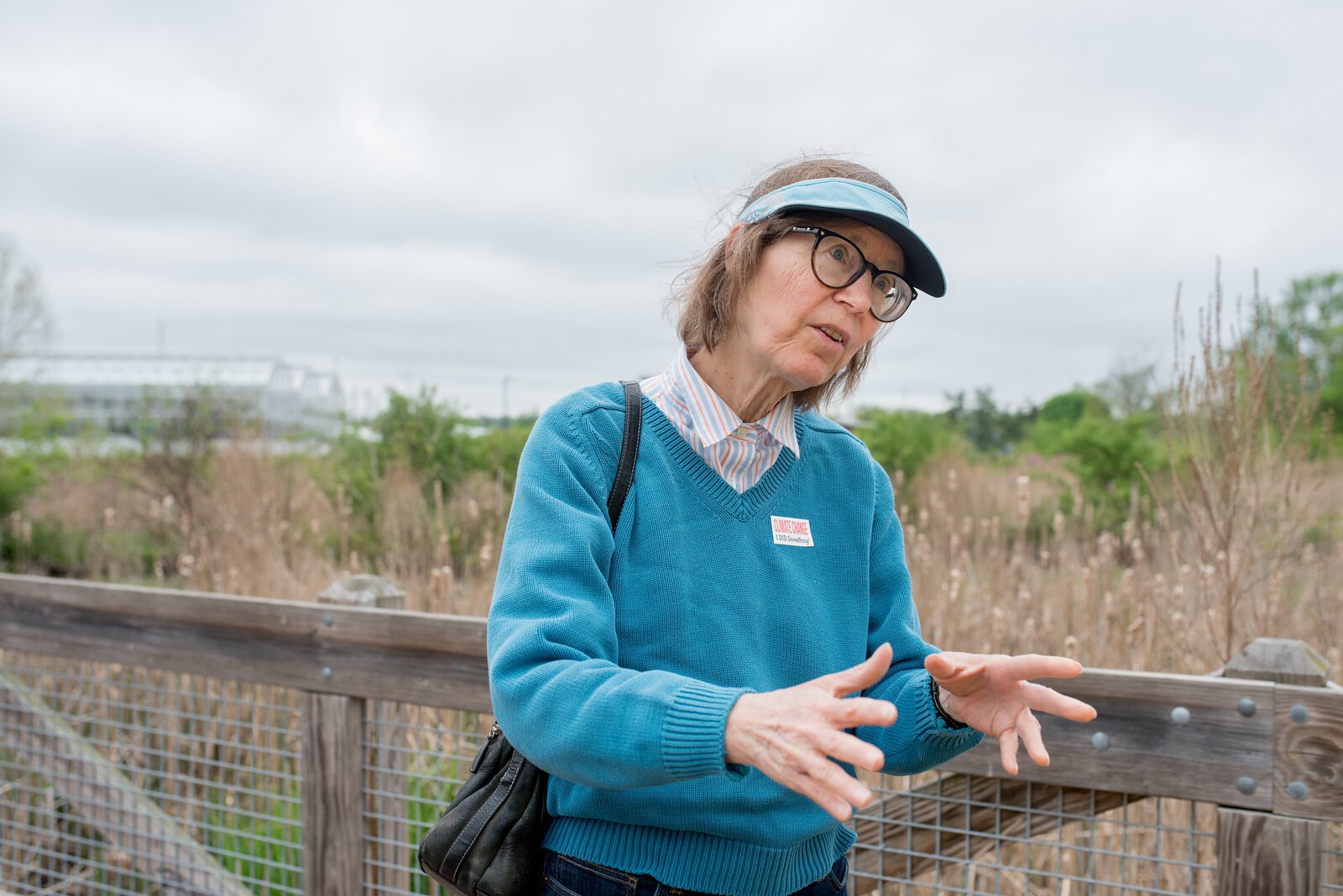Root Solutions: Climate optimism over climate doomerism can inspire the changes we need to make
"And if we can incentivize enough choices towards sustainability, then we can cut back on air pollution and all these extra costs that everyone's paying. We can make our world more sustainable and livable and healthier and fun."
Editor’s Note: This story is part of our series, Sacred Earth which examines the intersection between climate change — and faith, worldview, philosophy, psychology, and the creative arts. This series is sponsored by the Fetzer Institute.
KALAMAZOO, MI — Dr. Susan Schneider wants people to know that climate change is real and that more and more people are understanding that it’s real — but it doesn’t have to mean the end of the human race.
Schneider believes there is cause for hope. We just need to “talk it up,” amongst ourselves, and by creating a motivating framework, make some changes that shouldn’t be too painful.
Schneider is a behavioral psychologist and an adjunct faculty member at the Department of Psychology at Western Michigan University. She moved from California, where she co-founded the San Joaquin County Climate Action Coalition, to Kalamazoo two years ago, attracted mainly by our less-polluted air.
One could call her a Renaissance person, with a master’s from Brown in mechanical engineering, a background serving with the Peace Corps, an author, and a devout birder and Audubon member.
She’s also a “climate activist in particular,” and a devoted Star Trekkie who believes in a world where people work for the common good of all.
As part of her sustainability and psychology work, Schneider is also a team member of the national nonprofit organization, Root Solutions, whose mission is to “transform our world for the better — by equipping conservations and policymakers with the tools to increase the effectiveness of their essential work,” according to its website.
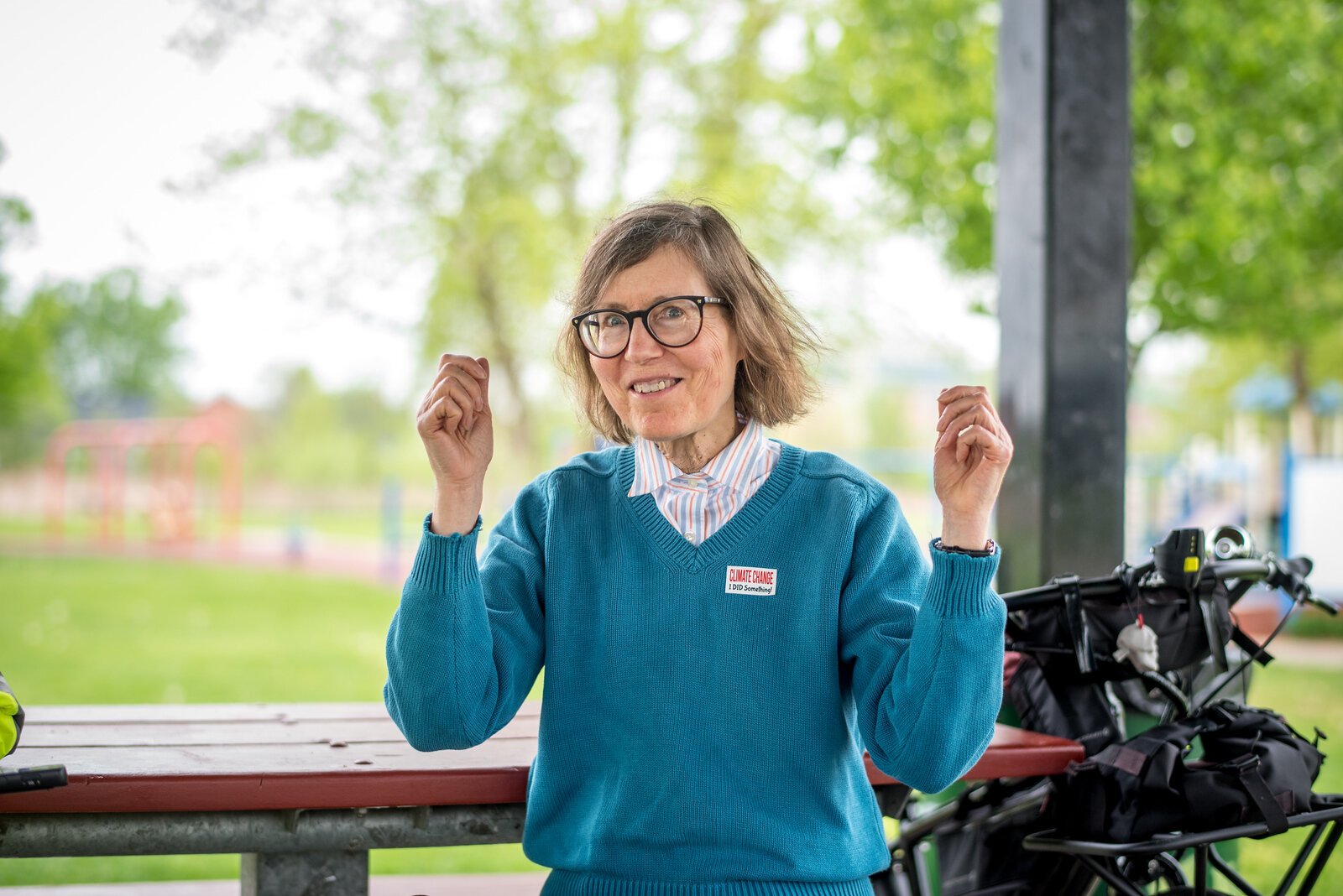
Dr. Susan Schneider
Root Solutions recently published a 500-page interdisciplinary guidebook “Making Shift Happen: Designing for Successful Environmental Behavior Change” that is being well-received.
The bedrock of Schneider’s belief (and those who work with Root Solutions) is that human behavior is at the root of environmental problems like climate change and plastic pollution — and human behavior can be changed using behavioral psychology and gamification.
Having a view that we’re all doomed isn’t going to motivate anyone to fix the problem, so Schneider prefers to have hope and encourage everyone to take action.
Actions, consequences, gamification
We talked with Schneider at Upjohn Park, by Portage Creek. At the park, a Kalamazoo River Valley Trail spur runs along a bit of urban nature in the Edison Neighborhood, creek burbling through the cattails, the distinctive call of the red-winged blackbird signaling late spring.
Having green space around is “so healing,” she says. “It’s one of the ways that I cope with my own climate anxiety, by enjoying nature.”
As a behavioral psychologist, Schneider is less focused on people’s emotional states and more on the questions surrounding why people do what they do.
Her book, “The Science of Consequences: How They Affect Genes, Change the Brain, and Impact Our World” (2012, Prometheus Books) details how actions lead to consequences, and how consequences can generate certain actions.
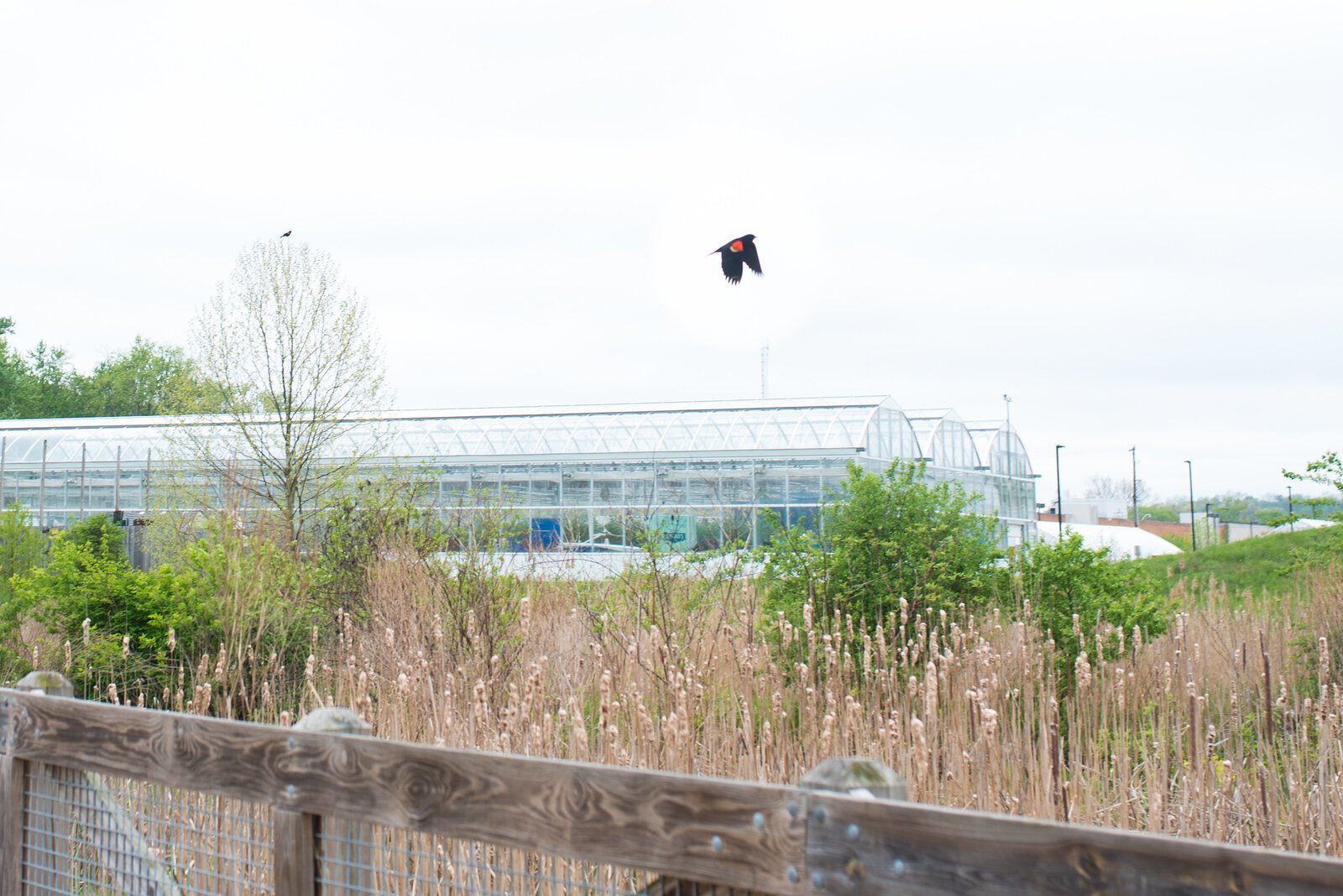
In her environmental work, Schneider applies behaviorist theories. What if, for example, we turned sustainability into a game?
Actions like gambling can be perpetuated by occasional rewards — put in a token, hit a button, the slot machine dings, and spews out tokens. The rewards can be rare, but the person keeps hitting that button.
Or video games where one has a mission to complete. The missions keep coming, and one finds it hard to log off and reenter real life.
People get hooked by “schedules of reinforcement, where it’s variable, where it’s like a slot machine,” she says. Also, “The (video) game designers long ago, back in the end of the 20th century, discovered behavioral psychology.
“You have people that get hooked on these video games, but that very same kind of approach can also lead to good outcomes with gamifying sustainability, and all its myriad aspects.”
Gamification can motivate people to go green, she says. An example: The Kalamazoo Commuter Challenge uses an app to record people’s bike rides, and to get a little competition going to see who can log the most miles.
“You might get a big payoff, and that keeps people playing or behaving in gamified, healthy behaviors, like dieting or going green, becoming more sustainable and all that. And you get a lot of behavior change for a lot fewer resources. And of course, all these nonprofits working on this, you know, we’re all strapped for resources.”
Who is not strapped for resources is the fossil fuel industry. Political spots on the local news sponsored by petroleum industry groups have been running during local news programming warning that President Biden is going to take away our gas-burning vehicles. (Fact check: Biden has supported electric vehicle subsidies, but according to a March Reuters report, U.S. oil production has still hit a record during the last few years.)
Schneider is keenly aware of how behaviors come out of the brain’s pleasure centers. When it comes to tearing down the road in a Ford F150 or eating a large cheeseburger, it’s not easy to get people to change rewarding (in the short term) habits like those. “Especially when it’s a habit that’s well established. In the developed world, we’re all used to relying on fossil fuels so much, including for our cars,” she says.
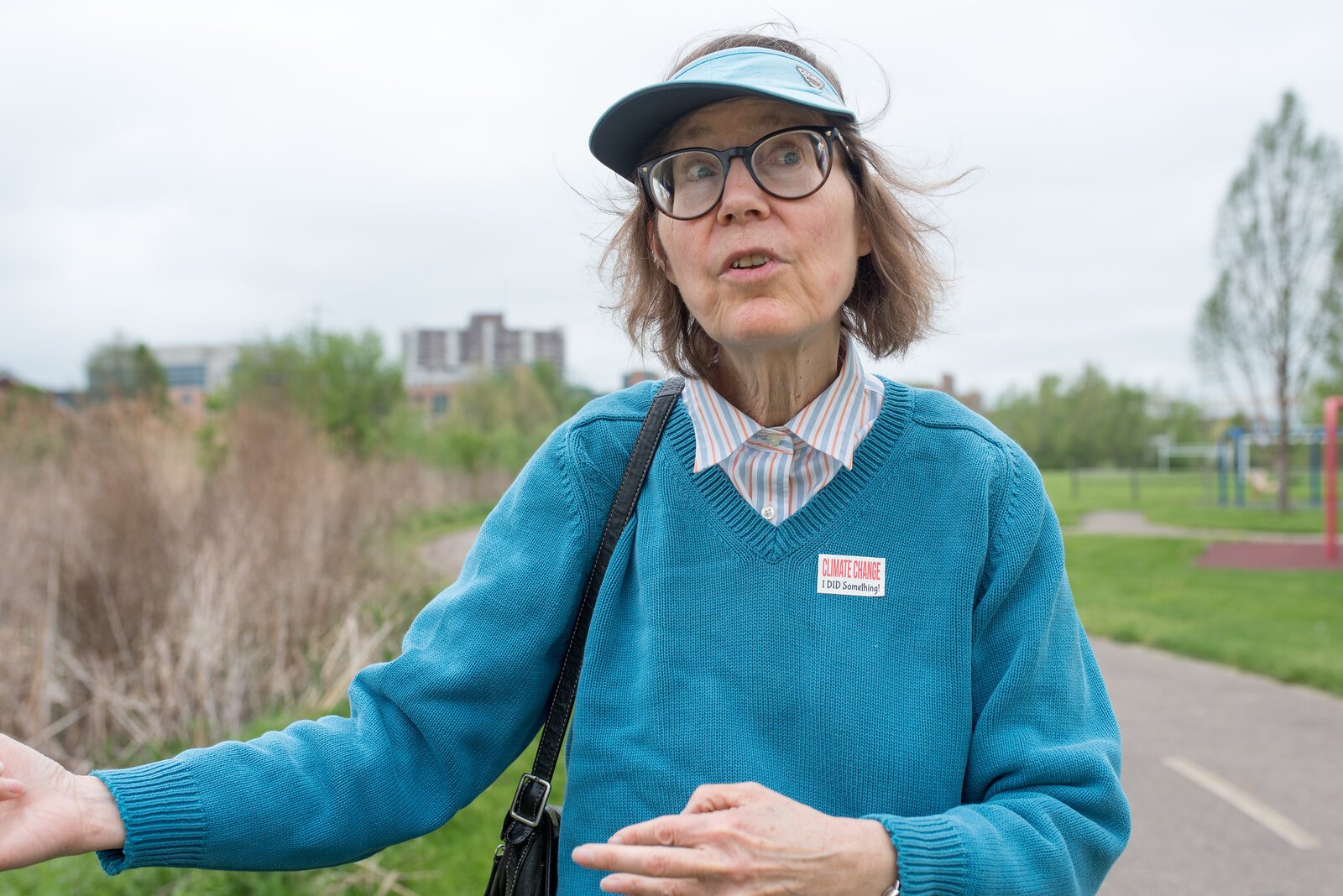
Dr. Susan Schneider
“But to get to the behavioral psychology question, that’s one of the other major barriers that the American Psychological Association Task Force on Climate Change found some years ago… the difficulty of changing established habits. Anyone who’s ever tried to quit smoking, or to diet, or to start exercising more,” knows this difficulty.
Gamification, plus government policies like the Inflation Reduction Act incentives toward purchasing electric vehicles, heat pumps, and solar panels, can help people change their habits, she says.
But it also helps to let people know these aren’t huge changes.
“I drive a used Chevy Bolt that I bought three and a half years ago, that’s an electric vehicle, fully electric. I love it. And in places like California, and even more so in Europe, places like Norway, electric vehicles are really taking off,” she says.
Schneider is a member of the Kalamazoo Electric Vehicle Association, which holds events for people to inspect and try out EVs. Once people get a hands-on demo of an EV, they realize it’s a real alternative to a gas burner, she says.
And hamburgers? “The Impossible Burger, that’s such a close facsimile. I mean, the first time that I had one, I really thought the restaurant had made a mistake.”
“And you don’t have to give up beef entirely. No one’s asking for that. Just to try and cut back if you currently eat a lot of beef.”
Signs of hope
“Ooh, yellow warbler!” She points to a yellow bird flying over the creek.
Schneider has seen bald eagles on Audubon walks at the Wolf Lake Fish Hatchery near Mattawan. It’s a sign that change can happen — DDT was banned, and now eagles are coming back.
She moved to Michigan for cleaner air, but what about the Canadian wildfire smoke ruined air quality for a few days last summer?
“No, we’re not immune (from climate change effects) here,” she says.
It’s enough to make a person feel helpless, on the road to doom.

“Yes, it’s understandable. When I talk to younger people, so many of them have climate anxiety. It’s heartbreaking,” she says.
“There is good news, too. There is cause for hope,” she says.
“Even in the U.S., our level of per capita greenhouse gas emissions is down from a high of 23 metric tons of CO2 equivalent per year per person to 15. And some states like California and Massachusetts are down to around 8, which is the level of a lot of the Western European nations who are leading the world. So we are making progress, including in this country.”
The other good news is that climate denial is “down from 9% to 5% in the most recent (Yale Climate Communications) poll. So this is really good news.”
“What we need to do now is to do a better job at reaching the vast bulk of people in the middle who get that this is real, but who aren’t doing anything about it, who don’t necessarily know what’s going on. And who don’t necessarily vote with climate in mind,” she says.
Politically/culturally, it seems that climate change denial is strong on the right side of the spectrum. But Schneider says polls show that younger Republicans understand that climate change is real, and members of faith communities see it through the lens of “good stewardship.” (An example in the local faith community, she mentions is Kalamazoo’s Hope for Creation).
She points to Katharine Hayhoe who is an evangelical Christian, daughter of missionaries, and wife of pastor Andrew Farley. They live in what might be a stereotypically petroleum-loving state, Texas.
Hayhoe is also a professor, an atmospheric scientist, and the author of “A Climate for Change: Global Warming Facts for Faith-Based Decisions,” and “Saving Us: A Climate Scientist’s Case for Hope and Healing in a Divided World.” (2021, Atria/One Signal).
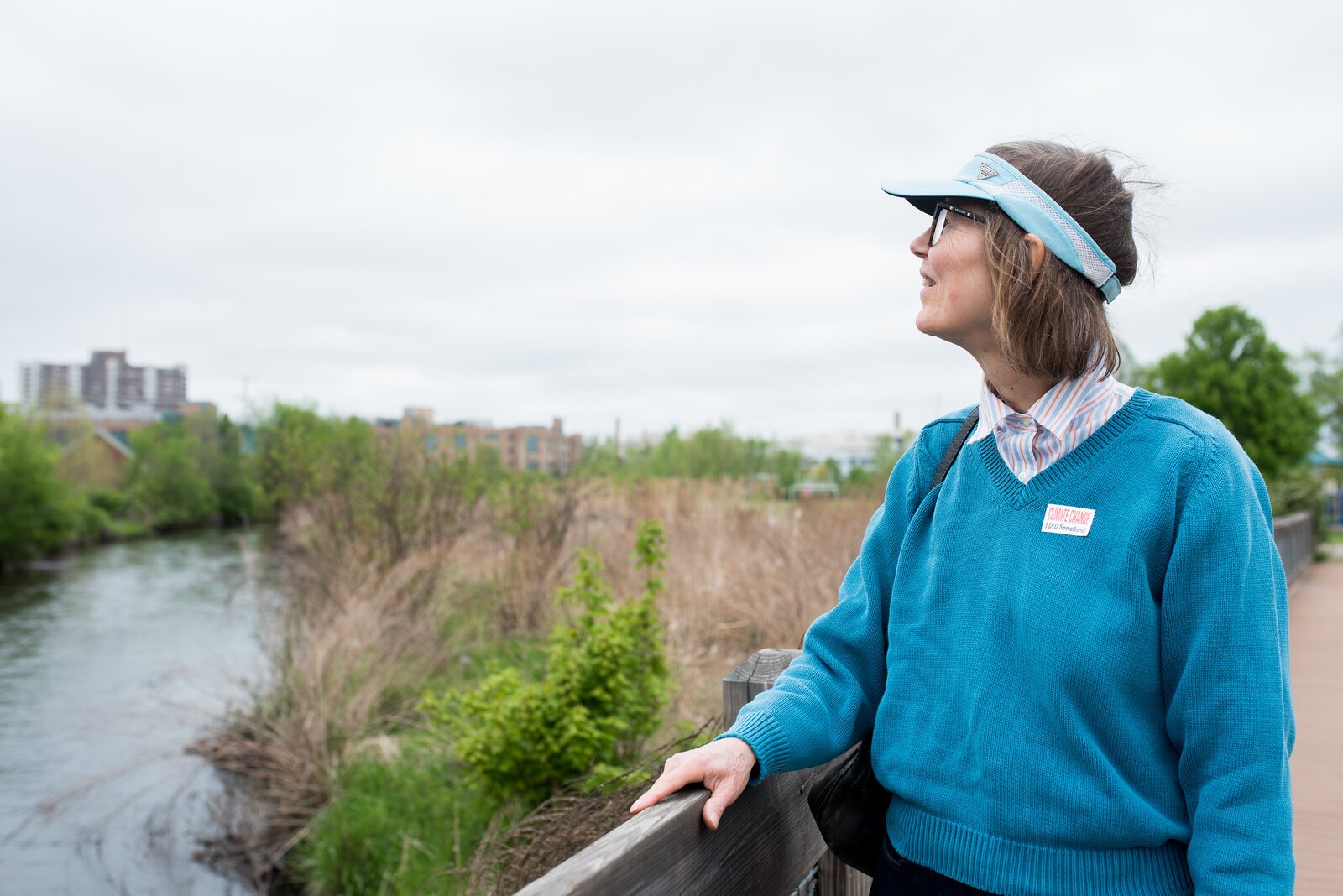
Dr. Susan Schneider
She “is doing a great job of outreach and making the case to conservatives using arguments like being a good steward, caring about the next generation, saving money,” Schneider says. “So often this is a money saver, right? Not relying on foreign sources of energy, right?”
Green (as in the color of money) can be a more powerful color than red or blue. Conservative states and farmers are discovering the money-saving, and money-generating power of renewable energy.
“In fact, Texas, where she’s from, is one of the leaders in the U.S. for renewable energy, even though it is a conservative state politically,” Schneider says.
“They’ve got tons and tons of wind. They’ve got a lot of solar, too, because people are making money, and it’s the cheapest option, renewable energy is, around the world in most cases now. So that speaks to conservatives as well.”
(View Katharine Hayhoe speaking on “Jimmy Kimmel Live” about how to talk to others who don’t believe in climate change.)
“Talk it up”
Could one say, if one were conspiratorially-minded, that Schneider just wants to use behavioral psychology to brainwash and control people, like Pavlov and that dog he made drool at the sound of a bell?
She has a ready come-back for that accusation. “I’d say that that’s what advertisers do, the fossil fuel companies with their well-documented misinformation campaign -— yeah, no!
“The idea is to make the changes we need that benefit everyone, really, except maybe people in the fossil fuel industry. And we need to have some kind of just transition there for those employees, right, like in the coal states, too, for example.”
There are a lot of industries that would rather keep the status quo. “We’re always being influenced by them,” she says.
“The thing is to know what’s going on and have free choice and informed choice.

“And if we can incentivize enough choices towards sustainability, then we can cut back on air pollution and all these extra costs that everyone’s paying. We can make our world more sustainable and livable and healthier and fun.”
The individual might feel powerless, alone, doomed — Schneider recommends simply to “Talk it up, educate yourself, go to events about sustainability — try and eat less beef, that’s really important — try and drive less and fly less, try an e-bike,” she says.
And remember that status quos change. Regarding the end of her book “Science of Consequences,” she says, “I compare when my dad was born in 1917 to where we were about a century later. And, you know, women can vote. There was so much less awareness of environmental issues, you know.
“We almost caused the buffalo to go extinct… And in so many ways, we have made a lot of progress… We have accomplished a lot with reducing poverty, increasing literacy and education, empowering women, addressing environmental issues.”.
Realizing in a Star Trek future
“We could still have what I like to think of as a ‘Star Trek’ future — being a Trekkie, you know, ” says Schnieder, “where today’s kids can have a world that is just so exciting to be part of, where we have less conflict, and where we have people living happily and contentedly, and not living unsustainably where they’re destroying people’s livelihoods and developing nations like we are now, or (destroying) their children’s futures.”
Compare the utopian future that she saw as a child in the ’60s and ’70s in “Star Trek” (an anomaly in the science fiction world with its goodwill and optimism) with what this journalist confessed formed his view of the future back in the ’80s, “Mad Max 2: The Road Warrior” depicting the collapse of mankind.
What’s our future? Humans from a peaceful Earth, using science and having the resources to explore strange new worlds — or humans battling over dwindling sources of petrol on the roads of the wasteland?
We each get to decide, almost daily. Schneider opts for hope and encourages even the smallest actions that consider the well-being of each other and the health of the planet.
“I mean, there’s so many ways in which we have made progress, and I think it helps to have a long perspective.”

